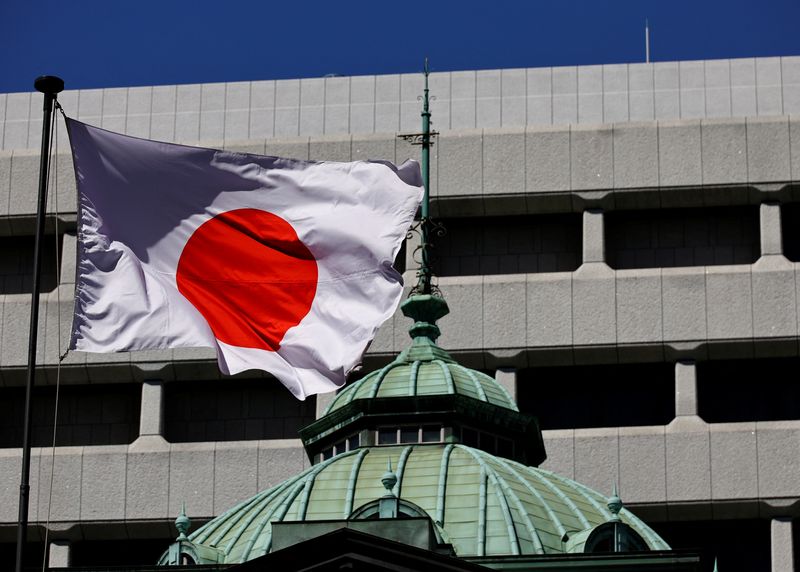By Leika Kihara and Takahiko Wada
TOKYO/TAKAMATSU, Japan (Reuters) -The Bank of Japan must raise interest rates at a “very moderate” pace and avoid hiking prematurely, its policymaker Seiji Adachi said on Wednesday, warning that further yen rises and slowing global demand may weigh on inflation and wage growth.
Adachi said Japan’s economy has already met the conditions for normalising ultra-loose monetary policy, with the economy remaining on a firm footing and price rises broadening.
But he warned of various economic uncertainties that required taking a cautious approach in raising interest rates.
The yen may keep rising from multi-decade lows as the U.S. Federal Reserve enters a full-fledged monetary easing cycle, which would push down Japanese import costs and weigh on consumer inflation, he said in a speech to business leaders in Takamatsu, western Japan.
There is also doubts on whether Japanese firms will keep raising wages sufficiently next year due to lingering global risks such as uncertainty over the outcome of the U.S. presidential election, as well as slowing Chinese and U.S. demand.
“Given high uncertainty surrounding global developments, there is significant uncertainty over next year’s wage developments in Japan. We must carefully monitor the situation,” Adachi said, signalling the need to spend time scrutinising such risks before raising rates again.
The remarks by Adachi, a former economist seen as taking a neutral approach on monetary policy, follow those by governor Kazuo Ueda suggesting the BOJ was in no rush to raise rates.
When asked at a news conference what would be deemed “sufficient” pay increases, Adachi said Japan would need to see wages rise in 2025 at least around the pace seen this year.
A meeting of BOJ regional branch managers, to be held in January, could offer enough clues on next year’s wage outlook, he added, suggesting his preference to wait at least until the start of next year before raising rates again.
Japan’s largest union group Rengo is considering demanding wage hikes of 5% or more in 2025, maintaining the level of their request made in 2024, Jiji news agency reported on Wednesday.
‘VERY MODERATE PACE’
The BOJ ended negative interest rates in March and raised its short-term policy rate to 0.25% in July on the view Japan was on track to stably meet the bank’s 2% inflation target.
No policy change is expected at the BOJ’s next rate review on Oct. 30-31, though markets are divided on whether the bank could hike rates in December or wait until January.
A slim majority of economist polled by Reuters saw the BOJ forgoing a hike this year, with most expecting the central bank to raise rates again by March next year.
Adachi said the BOJ should raise rates gradually and in several stages before inflation durably hits 2%, to avoid being forced to hike sharply by waiting too long. But he added policymakers must proceed cautiously to prevent a return to deflation.
“Until underlying inflation sustainably and stably achieves our 2% target, we must basically maintain an accommodative financial environment and raise our policy rate at a very moderate pace,” he said.
The BOJ will eventually raise its policy rate to a level that neither cools nor overheats the economy, which is called the natural rate of interest.

The BOJ does not have an official estimate on Japan’s natural rate of interest. But it publishes as reference several academic estimates that put the natural rate of interest in a range of between -1% to +0.5%. Many analysts see the natural rate of interest as lying somewhere around 1%.
“I believe we should avoid raising rates prematurely, so think we can use the most conservative estimate. Even so, our current, real policy rate is sufficiently below the natural rate of interest,” Adachi said. “This means an accommodative financial environment remains in place,” he said.







